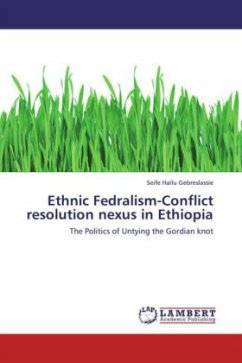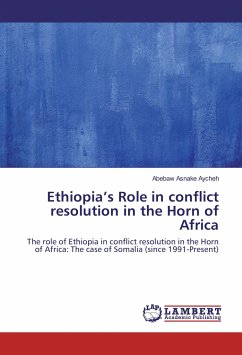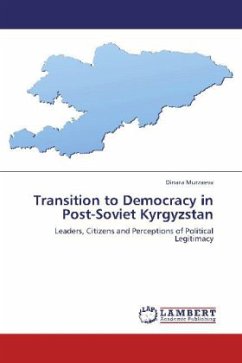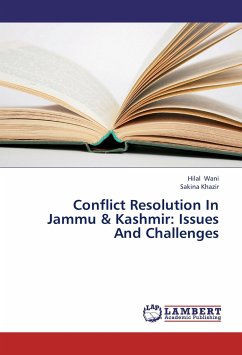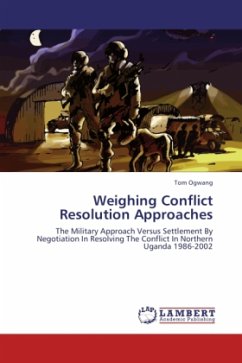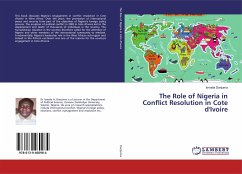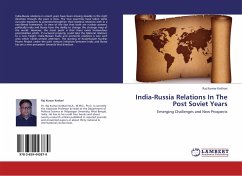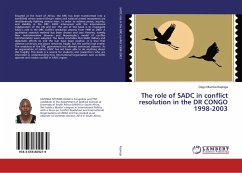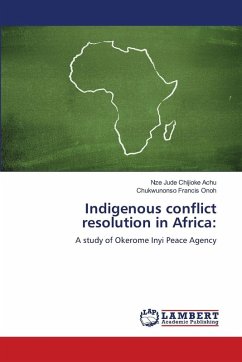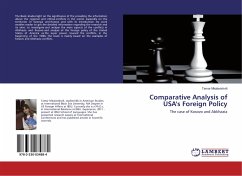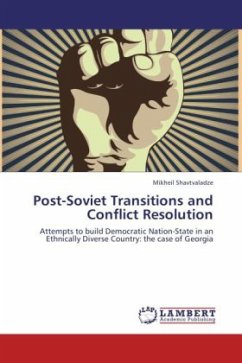
Post-Soviet Transitions and Conflict Resolution
Attempts to build Democratic Nation-State in an Ethnically Diverse Country: the case of Georgia
Versandkostenfrei!
Versandfertig in 6-10 Tagen
32,99 €
inkl. MwSt.

PAYBACK Punkte
16 °P sammeln!
The study aims to extend the theory of the Fourth Wave of transition in the Post-communist world endorsed by Michael McFaul (2004), and to find out to what extent and why Georgia, unlike Central and Eastern European countries, during its transition from communism and after ended up with an unconsolidated regime burdened with inter-ethnic conflicts and semi-dictatorial rules. Thus, in order to answer my research question, I embarked on an analysis of Georgia s political landscape since the collapse of the Soviet Union, particularly the attempts, challenges and factors that Georgia faced during ...
The study aims to extend the theory of the Fourth Wave of transition in the Post-communist world endorsed by Michael McFaul (2004), and to find out to what extent and why Georgia, unlike Central and Eastern European countries, during its transition from communism and after ended up with an unconsolidated regime burdened with inter-ethnic conflicts and semi-dictatorial rules. Thus, in order to answer my research question, I embarked on an analysis of Georgia s political landscape since the collapse of the Soviet Union, particularly the attempts, challenges and factors that Georgia faced during the presidential rule of Gamsakhurdia, Shevardnadze and Saakashvili. In order to accomplish my analysis, I applied a case study on Georgia s state-building processes and conflict resolution. Based on my findings, the theory indeed explains the reasons why Georgia s transition ended up with an unconsolidated state and hybrid or semi-autocratic rules: the presence of territorial disputes, its geographical location and the Soviet legacy of ethno-federalism.



